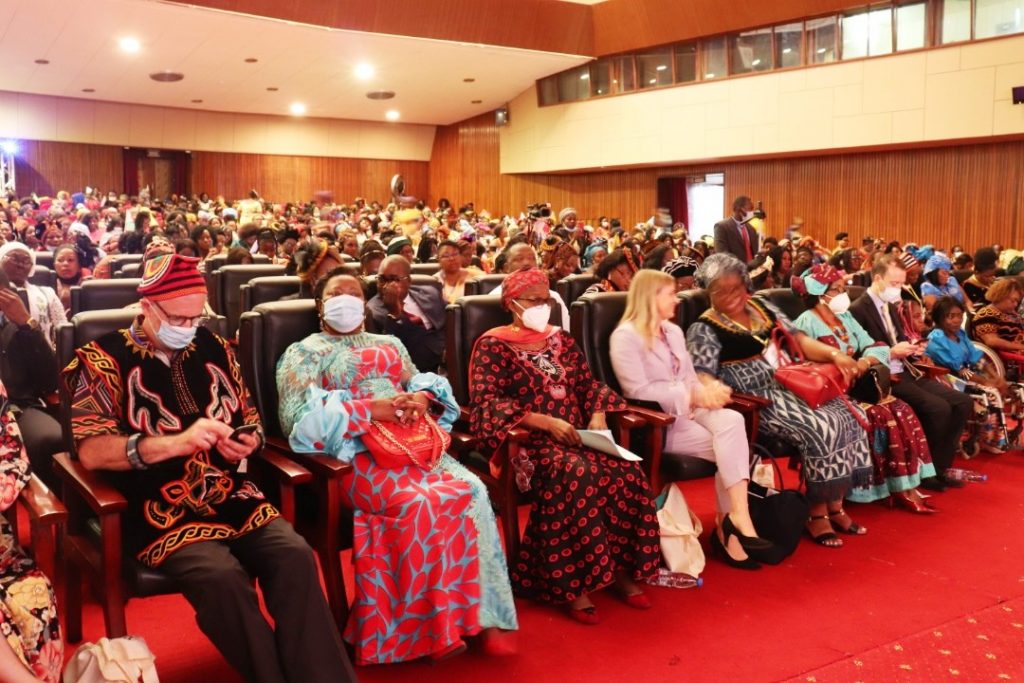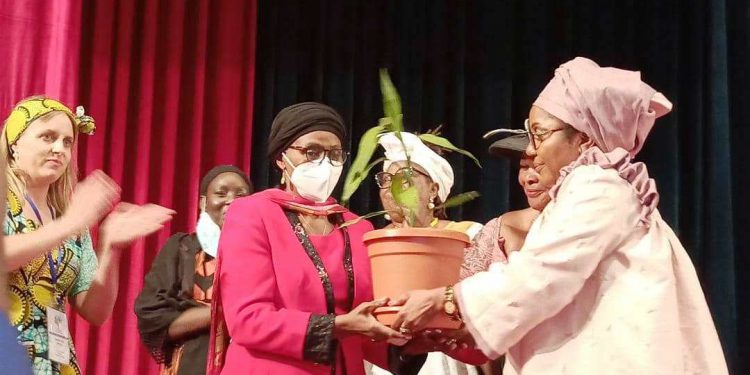The First National Women’s Convention for Peace in Cameroon has come and gone, with women asserting themselves. The convention organizers-some 38 Cameroonian women’s organizations and networks active in peace building and women’s human rights have, generally, been lauded for the peace initiative.
The three-day convention, which held from July29-31 at the Yaounde Conference Centre, assembled more than 1000 women committed to promoting peace across the national territory. The convention ended with a peace declaration, which stressed that Cameroon Women are lovers and advocates of peace. It is hoped that the women’s call for Peace would convince authorities to increase women’s participation in peace and political processes.
The convention was organized in response to years of bloody conflicts in the North, East, Northwest and Southwest regions of cameroon, which have claimed thousands of lives; thousands of women and girls living in these affected regions have also suffered hardship, violence and other forms of Human rights violations/abuses as a result of these armed conflicts. Friedrich-Ebert Stiftung Foundation in Yaounde financially and technically backed the convening of the women’s convention, which was attended by Cameroon’s Minister for Women’s Empowerment and the Family, Abena Ondoa nee Obama Marie Therese, with words of encouragement to the participants.
According to Yvonne Muma, the concept lead for the convention, it was time for Cameroonian women to work together and speak with one voice on issues of peace.
Nina Netzer, resident representative for Friedrich-Ebert Foundation applauded the women’s zeal to take part in the convention and praised those who made the effort to be part of the momentous event.
The convention addressed some issues at stake: the absence of women in key leadership positions; the structural and systemic marginalization of women in peace narratives; the limited implementation of key international instruments to capacitate the woman towards concrete actions for peace; and the limited exploitation of existing texts by women themselves.

The convention was also an opportunity for women to acquire knowledge and skills on pertinent conflict-related and peace-building concepts. For instance, the session on strategic dialogue explored the process and nature of dialogue in conflict resolution. Important lessons it passed across included the fact that, dialogue must take into consideration the location, timing, representatives, issues and the agreed mechanism for the implementation of outcomes; that strategic dialogue must address the root causes of the conflict; it must seek political consensus and there has to be an agreed identity for the type of crisis that being managed.
The convention also focused on issues of psychological trauma especially in the face of the traumatic experiences that women have been going through as they witness brutal killing of their loved ones and suffer gender-based violence.
Notwithstanding this successful organization of the convention, some detractors claimed it did not achieve much, yet are unable to back their claims with evidence or suggest what should have been done.
Need for more unity of purpose
The convention has laid the ground work for future conventions to learn from. Being the first of its kind amidst the armed conflicts in the North, East, North West and South West regions, speaks volumes of the organizers’ vision to engage in such an endeavor. Cameroonian women cannot speak with one voice if they cannot recognize what that voice is; if they cannot understand one another’s pains and have a shared understanding of what each woman is going through in their various corners.
They cannot speak with one voice if they cannot recognize a sister in the other woman.
As women forge ahead in their daily activities, it is important that they begin teaching the lessons of peace f rom within the family; begin to break the walls of hate speech such as ‘les anglos’, ‘les biafriens’, ‘ambazozo’ ‘terrorists’, ‘separatists’, ‘anglofous’ ‘frogs’ etc in their homes and communities.
In this instance, the national peace convention has laid a more solid foundation for peaceful co-existence.* Eileen Tabuwe Manka Akwo is a mass communication lecturer, University of Buea /peace activist.




